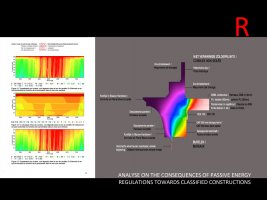Get real.
The rental flat using your figures is generating £15k per year, are you saying that on a salary of less than £22.5k they have investments, savings, paying off the flat mortgage early & still have enough left over to take on a mortgage on another house.
Not going to get much of a house anywhere with 4.5 X salary on £22.5k + deposit.
If the intention is to sell the flat within 3 years, it isn't worth the hassle, by the time you get tenants in & most importantly get them out again before the completion on the flat sale its too risky. You would only be looking at 2 years of income. You are then up against the clock for selling the flat, what are you going to do at 2 years 10 months when you havn't sold it? or the tenants don't wan't to move out?
While past performance is a pretty useless way to predict future performance, it can be a useful illustration of what can be achieved.
Consider a couple sitting in a £240,000 2 bed flat pre pandemic (and pre stamp duty holiday). Each earns £30,000 pa.
They take out a new 2% BTL mortgage, releasing 60% equity in their flat (£144,000).
They buy a £360,000 house with £144,000 deposit and £216,000 2% pa mortgage (3.6 * salary) and pay the £18,800 stamp duty and second home stamp duty surcharge from savings.
They rent their flat out at below market rates to get a good tenant for £1,000 pm.
Mortgage interest is £7,200 pa for both properties and net rental income pays the interest for both properties; they each pay a modest £280 per month to repay the capital on their main home over 25 years but plan to make regular overpayments after spending some money on home improvements.
A month later they start kicking themselves after the Chancellor announces the stamp duty holiday, but a year later they reassess.
Their flat is now worth £264,000 (+10%) and their equity has increased from £96,000 to £120,000 (+25%).
Their home is now worth £396,000 (+10%) and their equity has increased from £144,000 to £180,000 (+25%).
£60,000 paper profit in a year - exactly the same as their *gross* combined salary, with interest on their mortgages paid by their tenants paying below market rates, and each repaying £280 per month of their borrowing.
Life is good for this young couple, (and their tenants who are paying below market rent). And the young couple now have choices. Sell the flat and reduce their home mortgage (and reclaim the stamp duty surcharge paid on their house). Sit and wait until selling their flat would fully repay their home mortgage (writing off the stamp duty surcharge if after 3 years). Slowly repay both mortgages, and use the mortgage free rental income to boost their pension post retirement by about £400 each per month at todays values.
So while this year has been quite exceptional, you can see how let-to-buy can be an excellent investment opportunity during this period of ultra low interest rates. The bubble will burst at some stage, but if they have managed to repay some of their borrowing before the bubble does pop, they will have some protection from deflating values and increasing interest rates.

















